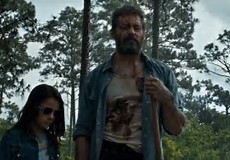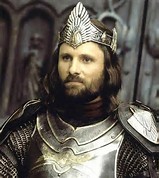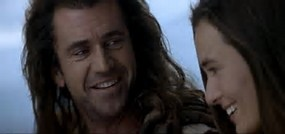Emotion is the lifeblood of your screenplay. That might not seem like such a bold statement to make, but you would be astounded how many films are missing that key component. This is especially true in genre films, like action, horror and comedy. The writers of those scripts and the makers of those films are (understandably) more concerned with getting thrills, chills and laughs in their respective genre, so not a lot of emotional development occurs within the characters or the story. That’s usually fine for a genre film, because you’re going to see them precisely for the thrills, chills and laughs that they provide. However, there are some genre films that go the extra mile and do create that emotion. What I mean by that is that they provide emotional connections with the audience that turn them from good or even great action or horror or comedy films, into films that transcend their genre and become all-timers.
This idea came to me as I was listening to the Third and Fairfax podcast. This particular episode had Brian Gary interviewing Scott Frank, who most recently wrote and directed the Netflix series Godless, but has a long list of screenwriting credits, including Get Shorty, Minority Report, The Wolverine, and Logan. Over the course of the interview, he discussed how reticent he was initially to work on The Wolverine because he wasn’t a fan of comic book movies and really didn’t know a lot about them. It also seemed like he knew that they missed an opportunity with The Wolverine, so he was even more reticent to work on Logan, but he was given certain assurances about how the script could be written and how the film would be made, and he seems to be much prouder of his work on the latter film.

One word that Frank kept coming back to over the course of the interview, whether he was discussing The Wolverine and Logan or Minority Report or any other of his past projects, was the work emotion. Where is the emotion coming from? What set of circumstances in this story will get an emotional reaction from the viewers? For the character of the Wolverine, it was the idea of facing his own mortality. For Chili Palmer in Get Shorty, it was being a huge movie fan and getting a behind-the-curtain look at the business. For John Anderton in Minority Report, it was becoming a victim of his own program. What these films have in common is that they’re all genre films (Action, Comedy, Science Fiction), but they all were successful beyond their genre because the emotional component that was added to the film attracted a wider audience than just those who are fans of that particular genre.
That’s what emotion does for you as a writer. It expands your audience.
I was thinking about this the other day as I was going through some of my old Best Picture blogs. There have been eight films that you could call either action or adventure to win Best Picture. Four of those winners came between 1995 and 2003 (Braveheart in 1995, Titanic in 1997, Gladiator in 2000, The Lord of the Rings: The Return of the King in 2003). I wouldn’t actually call Titanic an action movie in the purest sense of the term. The first half of the movie is a straight drama, but once the ship starts to sink, it turns into straight action. Other action/adventure Best Picture winners include The Bridge on the River Kwai (1957), Ben-Hur (1959), Lawrence of Arabia (1962), and The French Connection (1971). As I thought about the winners from the nineties and 2000’s, and then also about the earlier films, I realized that the one thing they all have in common is that, along with being spectacular action films, they all have emotional components to them that allow the audience to engage emotionally with the characters and really care what’s happening, as opposed to just being along for a thrill ride.

It really hit me as I was thinking about two films, in particular. The Return of the King is the final installment of the Lord of the Rings trilogy and there are several characters whom we’ve been following throughout the series. We’ve learned much about all of their personalities, their flaws, their fears, and their desires. For example, Frodo, the unlikely hobbit who’s tasked with taking the Ring to the land of Mordor in order to destroy it by casting it into the fires from whence it came, turns out to be a character of immense bravery and strength. He goes on this adventure reluctantly, and is always pining for home. Since hobbits are like miniature versions of humans, Frodo and his friends have a natural inferiority complex that leads them to believe they can’t accomplish as much as men. This inner struggle inspires the hobbits to excel beyond what they believe their limits are. When Aragorn finally accepts the crown to become the king of Gondor, the hobbits all bow before him, and in one of the most emotional moments of the series Aragorn says to them, “My friends, you bow to no one.”

Speaking of Aragorn, we learn early on that it was his ancestor, who generations earlier, was unable to destroy the ring when he had the opportunity to do so, and that led to his downfall. Aragorn fears that since the same blood flows in his veins then the same weakness may also. He is reluctant to take his rightful place in the world. That very human trepidation that Aragorn has creates an emotional bond with the audience, even though his issues are fanciful to the rest of us. None of us are ever going to become king, but all of us have felt some unease about our place in the world or in our profession or in life in general. Many of us may even feel unworthy of what our destinies may be, and that lack of self-worth holds us back, just like it’s held back Aragorn.
Braveheart is the other example. Mel Gibson directed and starred in this film about a simple Scotsman who ended up leading a revolution against the British king. William Wallace (Gibson) wants nothing more than to raise crops and a family, but that all changes when the woman he loves is killed by the English soldiers occupying his town. From that point on, the movie is filled with blood and carnage and adventure, but the first 40 minutes of this film are spent allowing us to get to know William and his love Murron and his friend Hamish (Brendan Gleeson). We get to see their relationships develop and we get to see the bonds they have with each other, and we care about them. We have an emotional attachment to them.

So once the blood starts pouring we have an emotional stake in the story so we care deeply about from whom that blood pours.
The other action films on his list have many of the same components, whether it’s Judah Ben-Hur being betrayed by his childhood friend, T.E. Lawrence proving to the generals and to himself that he’s a good soldier, or Maximus avenging the brutal slayings of his wife and son, we care for and root harder for these characters because of that emotional component.
If you are working on a screenplay and you believe that emotional component is missing, try one of our coverage services at the link here, and we can help you find the emotional key that will unlock the emotion in your story and open it up to a wider audience.